Tree swings are a pastime that many of us treasure from our childhood. It turns out that building a tree swing is relatively easy and can be done in many different ways. For example, some of us remember swinging on a single rope that was knotted for sitting while others may recall a more traditional wooden seat hanging from two ropes. Different types of rope are needed for whatever option you choose since good support for the swinger is very important.
How To Build Your Own Rope Swing
There's a wide variety of rope swings you can make. This instructional is for making a traditional double rope swing with a wooden seat.
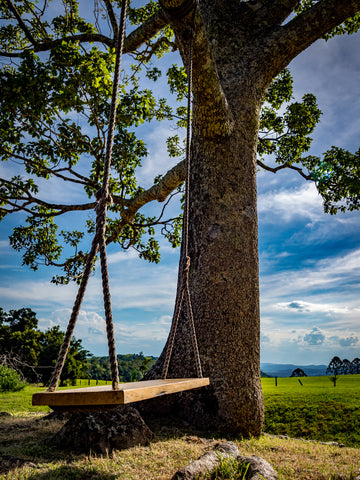
Step 1: Choose Your Rope Size and Length
To begin, the length of rope needed for your project will need to be determined. This can be done by doubling the distance from the ground to the swing and adding an additional 12-feet. Be sure to use the appropriate diameter for safety as needed. See our rope selection guide at the end of this article.
Step 2: Select Your Wood Seat
The seat size you select is dependent upon who your intended user will be. For most users a standard size of 7-inches wide by 16-inches long x 2-inches deep works well.
Step 3: Step-By-Step Building
- To begin, prepare your wooden seat by drilling a hole in each corner. The size of the hole should be slightly larger than the diameter of rope you select. Each hole should be approximately 1.5 inches from the edge of each side pertaining to the corners. The wood should be about 7 x 16 inches for a standard seat size, but feel free to go bigger for a more rustic look. This is also the right time to sand down the edges and also apply any finish you might want to use.
- Loop your rope around the branch of the tree or the vertical bar used for attaching your swing and secure it using a double running bowline knot. Here's a great video showing you how:
- Take the other end and thread it down through one on of the holes on the short side of the swing and back through the other hole on the same side.
- Secure the seat by tying a fisherman's knot with several loops. (Repeat on the opposite side using a level to make sure the sides are even.) This video shows how to tie a fisherman's knot:
Enjoy your new homemade rope tree swing!
Rope Swing Safety
Inspecting your swing should be done annually at the minimum. Regularly replacing and wear and tear is importing to guaranteeing safety and functionality. High quality rope is best since it should last for at least five years.
Educating your children on how to safely swing is very important. For example, both hands should always be used to grip the rope when in motion. For more information on what you and your kids should know, read #4 in this article.
Tree Swing Rope Selection Guide
What Kind of Rope Do I Use to Build a Tree Swing?
Twisted ropes are a great and authentic option. These are the oldest types of ropes and are formed by twisting the individual yarns together to form strands which are then twisted again to make the rope. Twisted ropes are also easier to splice than most braided ropes. That makes it easier to have longer pieces of rope to make your tree swing.
Twisted Cotton Rope
Twisted cotton ropes are made with natural cotton fibers and are available in a wide variety of colors. Very soft on the hands and provides for a unique swing look.
Manila Hemp Rope
Manila is one of the oldest ropes and is known as the "original rope." This is the same rope used in gym class and in the military for obstacle courses. Gives your tree swing a rustic and natural look.
UnManila / ProManila Rope
UnManila / ProManila is a twisted synthetic rope alternative that is meant to look like natural Manila Hemp ropes. Holds up great in the outdoors.
Twisted Polypropylene Ropes
Twisted Polypropylene is a stronger synthetic fiber that holds up very well in the outdoors and in the elements. It is available in a wide variety of colors and diameters.
Twisted Nylon Ropes
Twisted Nylon is one of the strongest fibers available. Nylon offers a bit of stretch and lots of strength. Choose from a number of diameters.
Twisted Poly-Dacron Combination Ropes
Made from a combination of the best yarns available: High-tech Polyolefin and Polyester, this rope is extremely strong and durable, resists water and dries quickly.
Twisted Polyester Ropes
Polyester ropes offer superior abrasion resistance, low stretch and won't fade in the sunlight. It's a very strong alternative to other synthetic ropes with little to no stretch.
Fibers
Each choice you come across when choosing the right rope for your swing is made up of fibers like natural cotton, manila hemp, nylon, polypropylene, and polyester. We recommend that you review rope properties before choosing what to use on your project. For example, you may want a chic look provided by the Manila Rope, but you may choose a similar color in the UnManila polypropylene category since its' fibers tend to last longer when exposed to extreme weather. This rope is very lightweight yet tough and resilient.
Once again, readers should study specs and research before choosing a rope asking questions such as:
- Is this rope going to be functional or strictly decorative?
- What is the strongest option?
- What will last the longest in outdoor conditions?
WARNING: Knots reduce the strength of the rope up to 50%, splicing is preferable. Chemicals will cause it to deteriorate. Do not use this product for overhead lifting, support of human weight or athletic equipment, or other situations where personal safety or valuable property can be endangered. The working loads shown should never be exceeded. Shock (stress, jerk) conditions can reduce working loads by as much as 33%. Never stand in line with rope under tension; such rope, particularly nylon rope, may recoil (snap back). Never use this product to secure large flat surfaces or objects. All ropes should be replaced if signs of wear, such as broken fibers are apparent. Misuse can result in serious injury or death.

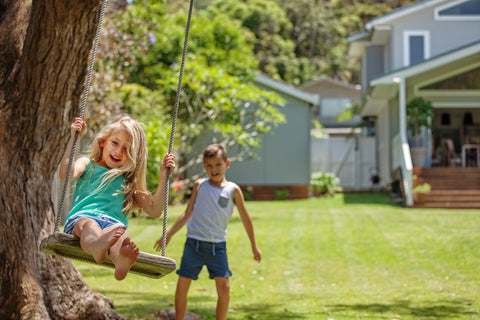
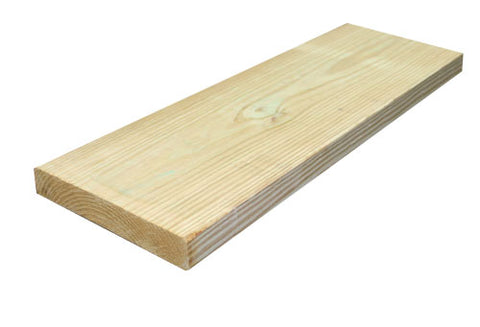
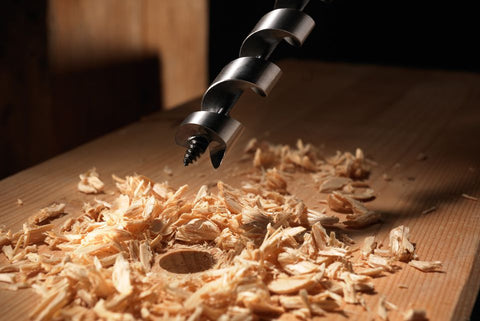

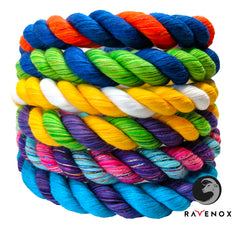
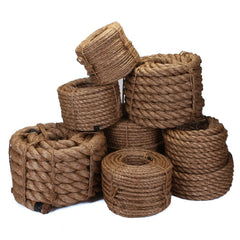
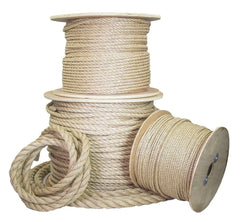
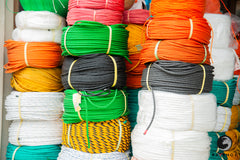
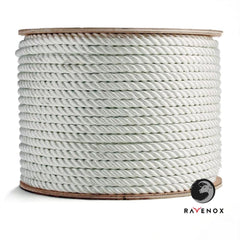
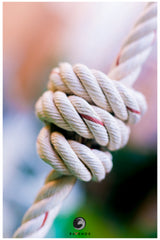
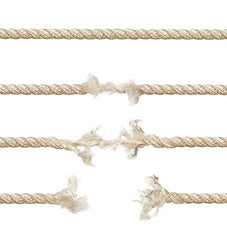
Comment
Do you know about a knot to use where you can get your rope back from your high up single rope swing. Please